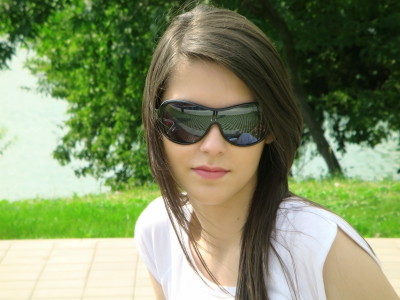Research results show that the ``doorway effect'' in which people forget their errands when entering a room can also occur in a virtual environment

Many people have had the experience of going into their room with something to do, but then forgetting what the errand was. This type of event is called the '
Walking through doorways causes forgetting: Situation models and experienced space | Memory & Cognition
https://link.springer.com/article/10.3758/BF03193261
Walking through doorways causes forgetting: Environmental integration | Psychonomic Bulletin & Review
https://link.springer.com/article/10.3758/PBR.17.6.900
The 'doorway effect' and 'location update effect' are psychological phenomena in which short-term memory is lost when passing through a doorway or moving from one place to another. Previous research has shown that the doorway effect occurs not only with physical movement, such as moving from room to room, but also when moving from one desktop window to another on a computer.
A 2006 study by author Gabriel Radvansky and University of Notre Dame professor David Copeland conducted an experiment on the doorway effect in a virtual environment with 41 participants.
The research team created a program for 66 rooms with tables containing objects of different colors, such as red, orange, and yellow, and of different shapes, such as cubes and cones. The object disappears when the subject picks it up, and reappears on the table when it is placed down. After confirming this behavior, the subject moves through a doorway in the virtual environment to another room on the program. In that room, the names of colors and shapes are displayed, and the subject responds with 'yes' or 'no' to see if they match the previous object.

In the experiment, trials were conducted to examine the association between color and shape, as well as trials unrelated to the objects manipulated by the subjects. The results of the experiment revealed that moving through a doorway made it difficult to recall the manipulated object.
Next, the research team removed the walls and doorways between the room where objects were manipulated and the room where questions were asked, and conducted a similar experiment. As a result, it was found that the subjects' memory recall significantly improved despite the spatial change of moving from room to room.

These experiments revealed that passing through doorways in virtual environments has a negative impact on memory recall, and also highlighted the impact of the doorway effect on cognitive processing.
The research by Mr. Radvansky and Mr. Copeland et al. was conducted using a 66-inch monitor to increase the immersion of the subjects. Radvansky later collaborated with Sabine Kravitz of the University of Notre Dame and others to conduct a similar
Furthermore, the research team actually conducted experiments using three laboratories to maximize immersion. In an experiment with 60 subjects, participants were asked to memorize objects placed on a table in the first room and then move to another room. Participants were then given a distraction task, moved around the room, and tested on the memorized objects. This experiment also revealed the doorway effect, in which short-term memory is lost after spatial movement, proving that the doorway effect can occur in any environment, real or virtual.

In addition, the research team conducted an experiment in which they memorized objects using a virtual environment, moved them from room to room, and then returned to the first room to perform a test on the objects. It turned out that even though we added conditions that seemed to work in the participants' favor by letting them go back, their memories still became vague.
In a study conducted in 2021 by Bond University psychologist Oliver Bauman and colleagues, people moved through a 3D room expressed in VR and recalled objects that were in the previous room. In this study as well, the research team conducted an experiment with subjects under stress on their working memory, and the existence of the doorway effect was confirmed.
When is the ``doorway effect,'' where you forget about your errands the moment you enter a room, strong? -GIGAZINE

Related Posts:
in Science, Posted by log1r_ut





